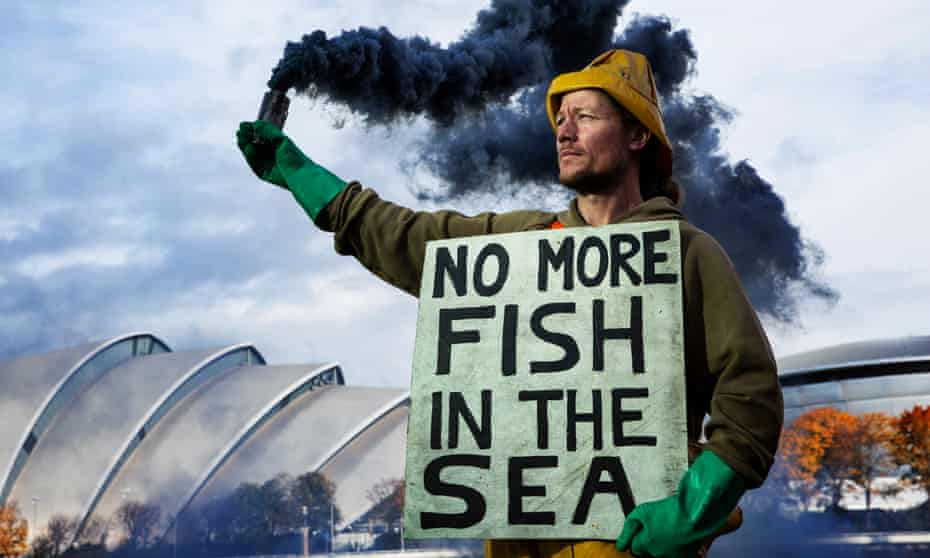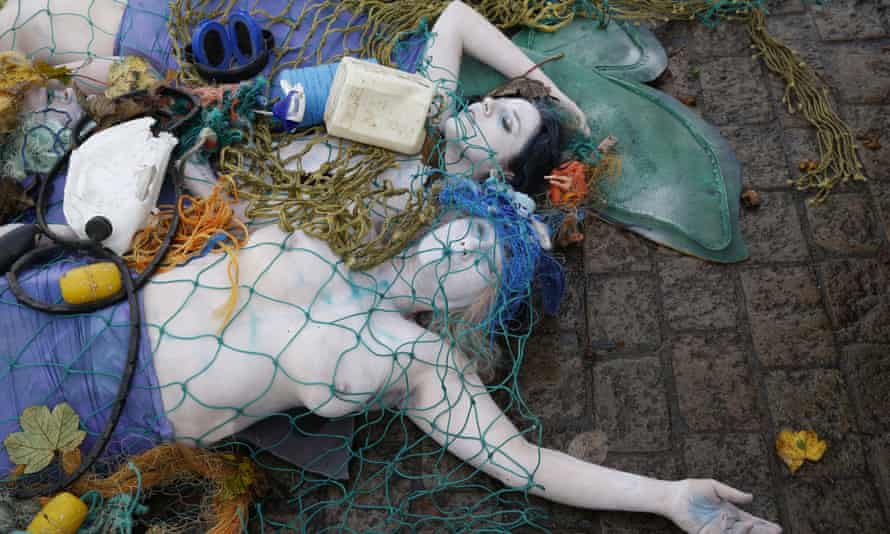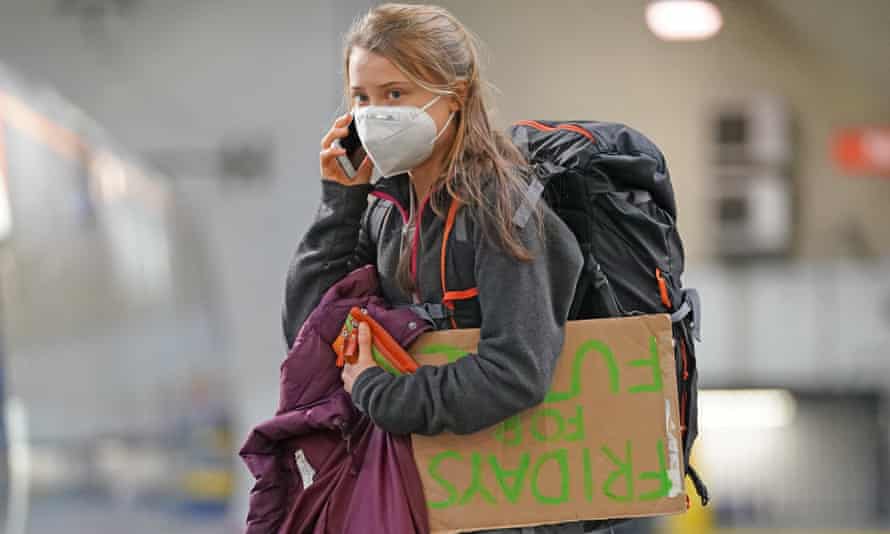‘It’s the protests which are giving me hope’: activists descend on Glasgow
Campaigners from around the world are uniting to disrupt the Cop26 conference and put pressure on political leaders

Thousands of protesters from around the world arrived in Glasgow on Saturday to demand urgent action on the escalating ecological emergency before the two-week Cop26 climate conference.
Campaigners from scores of environmental justice, indigenous and civil society groups are converging on Scotland’s biggest city to forge alliances and pressure political leaders.
Among the activists to arrive in Glasgow on Saturday evening was Greta Thunberg who was mobbed by supporters at Glasgow Central train station. Climate protesters held a demonstration at the station ahead of her arrival and the teenage activist was greeted by large crowds of supporters.
Protests – from marches to strikes, and occupations to roadblocks – are being planned and activists say their campaigns of peaceful civil disobedience will be crucial to the outcome of the talks. “It is the protests which give me hope,” said Cat Scothorne, 18, an activist with Glasgow Calls Out Polluters.
“It is a chance to foreground the voices of those people on the frontline of the climate crisis and push back against the influence and ‘green washing’ of corporations at this Cop – a chance to tell people what is really happening, especially in the global south.”
Campaigners from Europe, Africa and Asia joined UK activists on Saturdayon the streets as protests and civil society events got under way. On the banks of the Clyde, overlooking the Cop26 conference centre, activists from Ocean Rebellion dressed as mermaids to highlight the huge impact industrial fishing has on greenhouse emissions.
Delegates from the Minga Indigena collective, representing indigenous communities in North and South America, were welcomed to the city by Scotland’s first minister Nicola Sturgeon. They mixed water from Scotland and the Andes before calling for climate justice to be a “unifying demand of Cop26”.

In central Glasgow, activists who had walked to Cop26 from across the UK and Europe arrived in the city demanding justice for those on the frontline of the climate crisis.
Alex Cochrane, from Extinction Rebellion Glasgow, which helped organise the “pilgrims’ procession”, said it was time for governments to “walk the walk for the global south”.
Cochrane added: “Cop26 must end a growing crime against humanity by wealthy governments where the global south are sacrificed to bear the brunt of the global north’s affluent, carbon-intensive lifestyles.”
Protester numbers were due to grow on Saturday eveningwith the arrival of a “climate train” carrying hundreds of activists from across Europe at Glasgow Central station.
Federico Pastoris, a climate justice activist and campaigner with the Stop Cambo group, which is campaigning to prevent drilling in the Cambo oilfield in the North Sea, said the next two weeks were as much about building links between environment campaigners in Europe and frontline communities in the global south as they were about influencing what goes on inside the conference centre.

“It is summed up by the idea of climate justice… there is a realisation that the Cop process is ineffective so we need to build grassroots collaborations and solidarity to find new ways of addressing this crisis. That is why people have made such an effort to get here.”
Over the next fortnight, campaigners are planning a series of protests and civil disobedience actions. On Friday Thunberg is planning to join a school strike in Glasgow, and on Saturday a global day of action will see large-scale marches in both Glasgow and London, with campaigners promising spin-off civil disobedience protests. Activists say there will also be smaller, more disruptive actions throughout the two weeks of the conference.
Many campaigners and civil society groups from the global south have had severe difficulty getting to Glasgow because of problems with visas and the changing Covid-19 travel restrictions.
However, by Saturday some had made it. Patience Nabukalu, 24, had travelled from Uganda as part of the Mapa – “most affected people and areas” – organisation, representing communities disproportionately affected by climate change.
“This is an opportunity for people like us, who live in areas that are really facing the climate effects right now, to raise our voices,” she said.
Nabukalu, who was speaking from a coach that was expected to arrive in Glasgow on Saturday evening, said she had grown up facing ever-more-regular and extreme flooding, which had had dire consequences for her family and the wider community.
She added: “The only thing I want to hear [from world leaders] are climate solutions and climate action. I am tired of promises and pledges because promises keep getting made but nothing actually happens and we are running out of time.”
